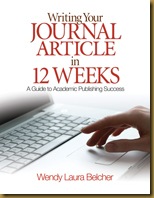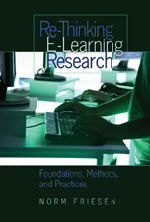Now, to try to distinguish this from Jack Mezirow’s Transformative Learning theory. Anybody see anything that tries to show the similarities and differences?
Category: Lancaster PhD
Beginning my next Research Design / Project
I have been thinking a lot about this, though find that I really organize it and learn about it (and myself) when I begin to write it out (cf. Richardson, Writing: A method of inquiry, 2000), as the notion of writing as a form of inquiry is valuable for me. I learn as I write, and then the feedback along the way from my distributed community is invaluable.
To this end, I am beginning to look at the concept of Threshold Concepts and Troublesome Knowledge, as it seems related to the concept of transformational learning (something that I think may be related to autoethnographic inquiry). Lots of relationships here. A lot to process, though I just accessed these two articles and a book section that my faculty tutor suggested I read for some ideas. This is now my reading for the remainder of the week.
Meyer, J. H. F., & Land, R. (2005). Threshold concepts and troublesome knowledge (2): Epistemological considerations and a conceptual framewok for teaching and learning. Higher Education, 49(3), 378-388.
Marshall, J. (1999). Living life as inquiry. Systemic Practice and Action Research, 12(2), 155-171.
Perkins, D. (2008). Beyond understanding. In R. Land, J. H. F. Meyer & J. Smith (Eds.), Threshold concepts within the disciplines. Rotterdam: Sense Publishers.
I will begin tracking and developing my research idea here, and look forward to some feedback along the way. Any suggestions to help me process this are most appreciated!
A Journal Article Workbook
 I am beginning to work on revising one of my doctoral papers for a journal article (which will hopefully be my first, single author article), and am happy with the new text I just found to assist and help organize the process — Writing Your Journal Article in Twelve Weeks: A Guide to Academic Publishing Success
I am beginning to work on revising one of my doctoral papers for a journal article (which will hopefully be my first, single author article), and am happy with the new text I just found to assist and help organize the process — Writing Your Journal Article in Twelve Weeks: A Guide to Academic Publishing Success, by Wendy Laura Belcher. She writes in a friendly and encouraging style, while clearly remaining focused on the goal of publishing the article.
Right now, I am working my way through the first week, which is Designing Your Plan for Writing. She has a few handy templates for the process, including a Twelve-Week Calendar for Planning Article Writing Schedule and Weekly Calendar for Planning Article Writing Scheduling, both freely available on her website. While I often think just having the templates is enough, I know that remaining focused and having a guide / mentor to assist in the process is well worth the time and efforts. You may be surprised at all her useful suggestions in the 350-page workbook.
Today I will work on my 12 week schedule, so I can finally take one of my ideas and bring it to light . . .
Research Interest Clarification, 2009
 I recently had to re- introduce myself to a colleague regarding where my current research interests are, and I thought it may be interesting to share with a wider audience, as I do get asked to explain what I am interested in (since I cannot oversimplify this, however hard I try).
I recently had to re- introduce myself to a colleague regarding where my current research interests are, and I thought it may be interesting to share with a wider audience, as I do get asked to explain what I am interested in (since I cannot oversimplify this, however hard I try).
One of the things I learned about myself in the module at Lancaster I just finished is just how much I love qualitative methods. Not just qualitative studies in my own content areas, but the rich methodological particulars in themselves. Yes, I couldn’t believe it when I first said that a few weeks ago – I knew I was interested in application to practice, but now find myself loving the complexities and issues around selecting, using, and assessing various qualitative methods. I can see myself really exploring this more in itself . . .
Since my background is adult education, I tend to think of myself as an adult educator. I like critical theory and constructivist frameworks, and am fond of Wenger’s Community of Practice model, as well as Jack Mezirow’s Transformative Learning framework. I am a proponent of postmodernity, and as such am interested in identity development, especially in online blogs and other forms of social media where narrative inquiry and autoethnography can be used.
Now, to see how all this can develop toward a thesis direction . . .
Re-Thinking E-Learning Research (free) Seminar at SCoPE
 I just learned about a new 3-week online seminar that just began at SCoPE: Re-Thinking E-Learning Research. I purchased this text after reading about it earlier in the year, and this is a great opportunity to begin reading it, especially given that my doctoral studies are in E-Research and Technology Enhanced Learning. As I take such a broad view of what elearning and e-research are, this session may be just the thing I am looking for.
I just learned about a new 3-week online seminar that just began at SCoPE: Re-Thinking E-Learning Research. I purchased this text after reading about it earlier in the year, and this is a great opportunity to begin reading it, especially given that my doctoral studies are in E-Research and Technology Enhanced Learning. As I take such a broad view of what elearning and e-research are, this session may be just the thing I am looking for.
I am really interested in the 3 topics that will be covered and discussed:
- Introduction to e-learning research: What is it? Where are we?
- Narrative: What is the case for narrative methods in e-learning research?
- Critical Theory: How can methodologies associated with critical theory contribute to the field of e-learning research?
Perhaps I will see some of my colleagues online during this event, and we can experience how all this works within an online community of practice as well!
